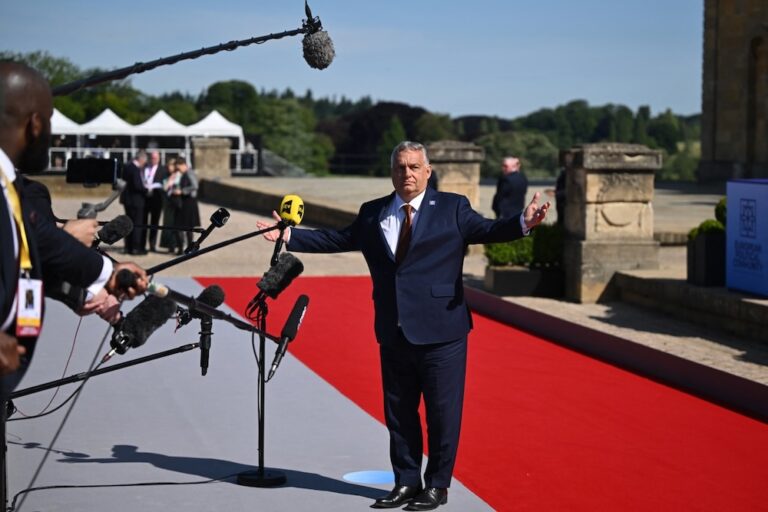Parliamentarians in Budapest agreed to create a new media council which will have the power to fine newspapers if they don't provide "balanced coverage".
(IFJ/IFEX) – 23 December 2010 – The European Federation of Journalists (EFJ), the European group of the International Federation of Journalists (IFJ), today warned that Hungary’s leadership of the European Union in the first half of 2011 is already blighted following the passing of a new media law this week that appears to violate fundamental rights in Europe.
Parliamentarians in Budapest this week agreed to create a new media council which will have the power to fine newspapers if they don’t provide “balanced coverage.” The EFJ says the action violates free expression rights and is an echo of the political controls of journalism and media during the communist era.
“Hungary is due to assume the six-month rotating presidency of the EU on January 1st 2011, and on the same day the government enacts a new media law that will create a blanket of self-censorship across the country’s media,” said Arne König, EFJ President. “It is untenable that a country which has enacted a law undermining fundamental rights including media freedom should now assume the moral and political leadership of the European Union. We will urge the European Commission to thoroughly investigate this law as a priority and ask Commissioner Reding, responsible for Fundamental Rights, for a quick reaction.”
Several European nations have voiced concerns over the sweeping new law, taking the unusual step of publicly criticising a fellow EU member. The EFJ, joined by members of the European Parliament and many other human rights and media watchdog organisations, has warned Hungary in recent months to respect media freedom and journalists’ independence.
The EFJ is particularly concerned that Hungary is in breach of the Charter for Fundamental Rights and Article 11 on media freedom and media pluralism and is calling for European institutions to vigorously monitor the impact of the new law on citizens’ rights. But European journalists are also concerned about the deterioration of press rights in other EU states.
“Unfortunately, Hungary does not stand alone, the media situation in Romania is dramatic and the EFJ has agreed to send a mission in early January. Given the situation in Hungary it may do the same in Hungary,” said König. “We will join forces with other organisations and insist that the EU sticks to its fundamental rights agenda.”
Hungary’s parliament approved the contentious new law on Tuesday, drawing protests from opposition parties and civil society. Publications deemed to be unbalanced or offensive in their coverage may face large fines. The EFJ affiliate, the Hungarian Association of Journalists, together with other groups, has drafted a protest petition, and a fresh European-wide campaign against the law will be launched in the New Year.


